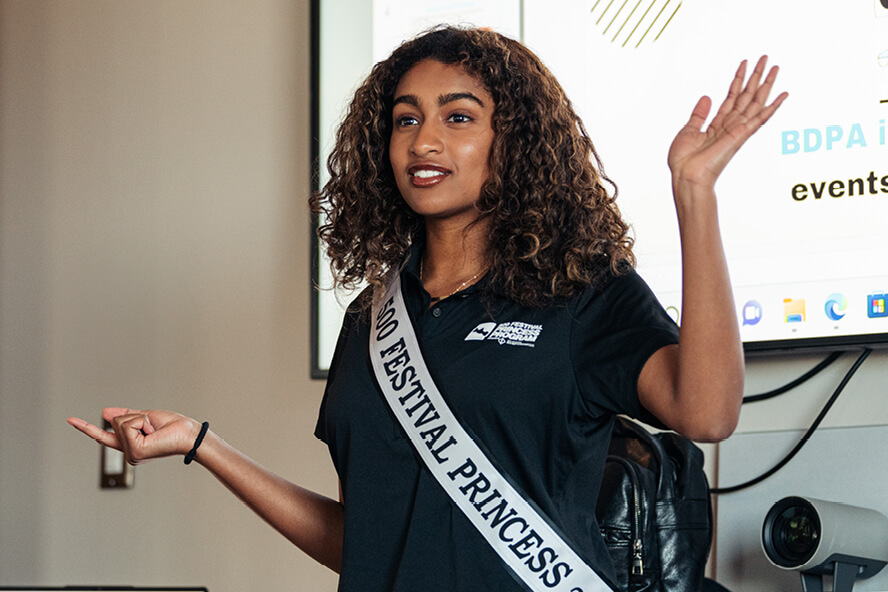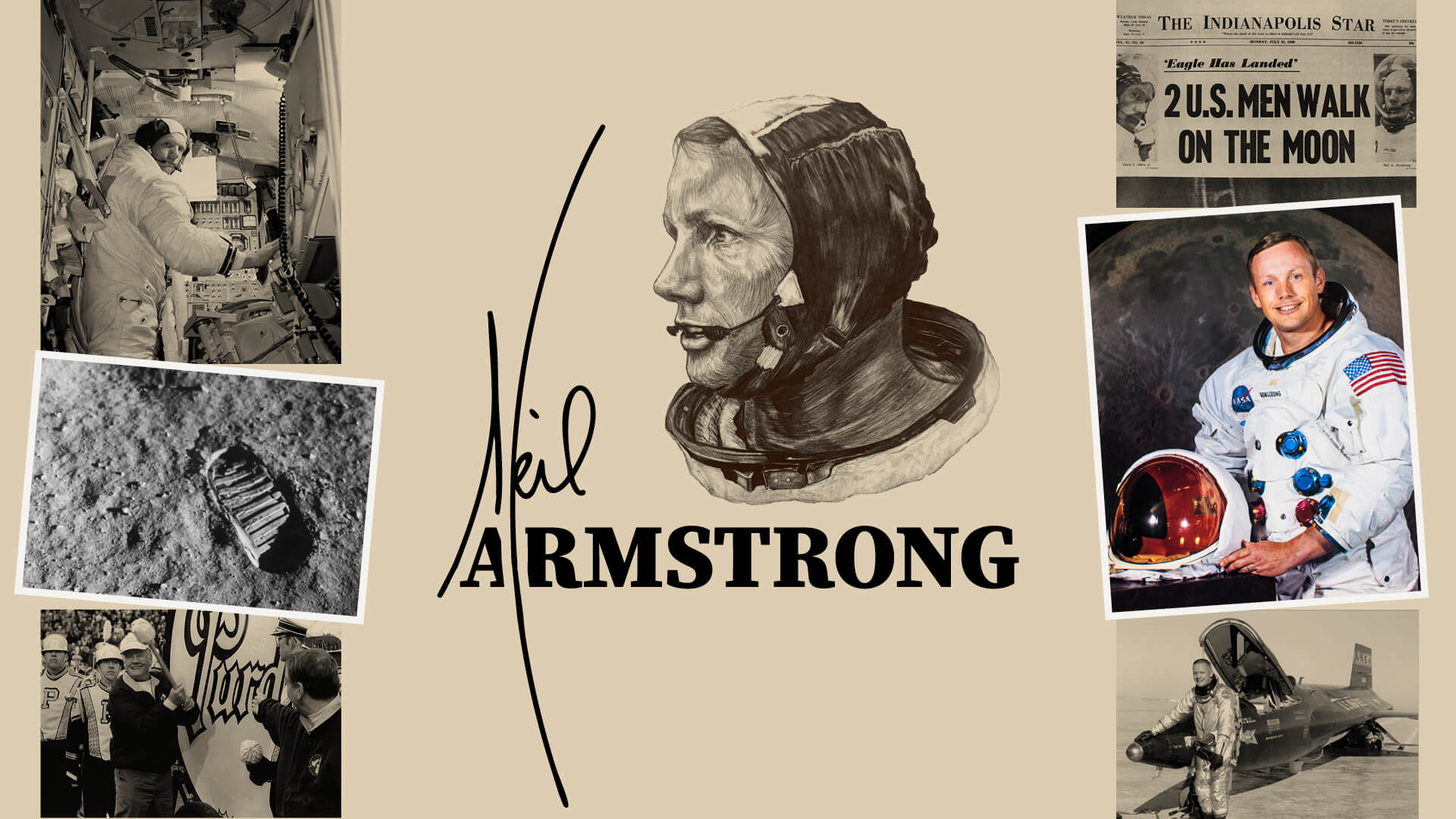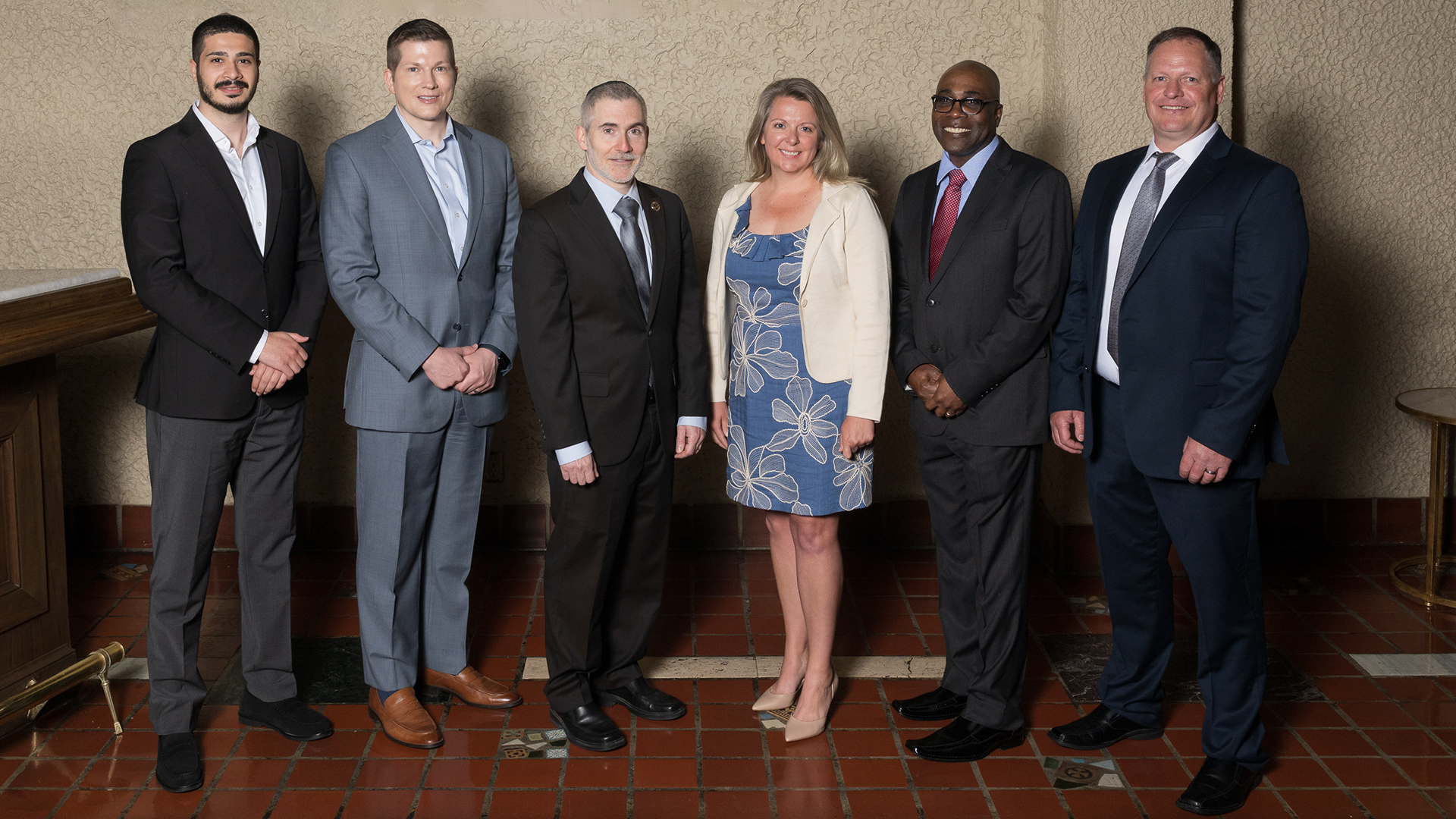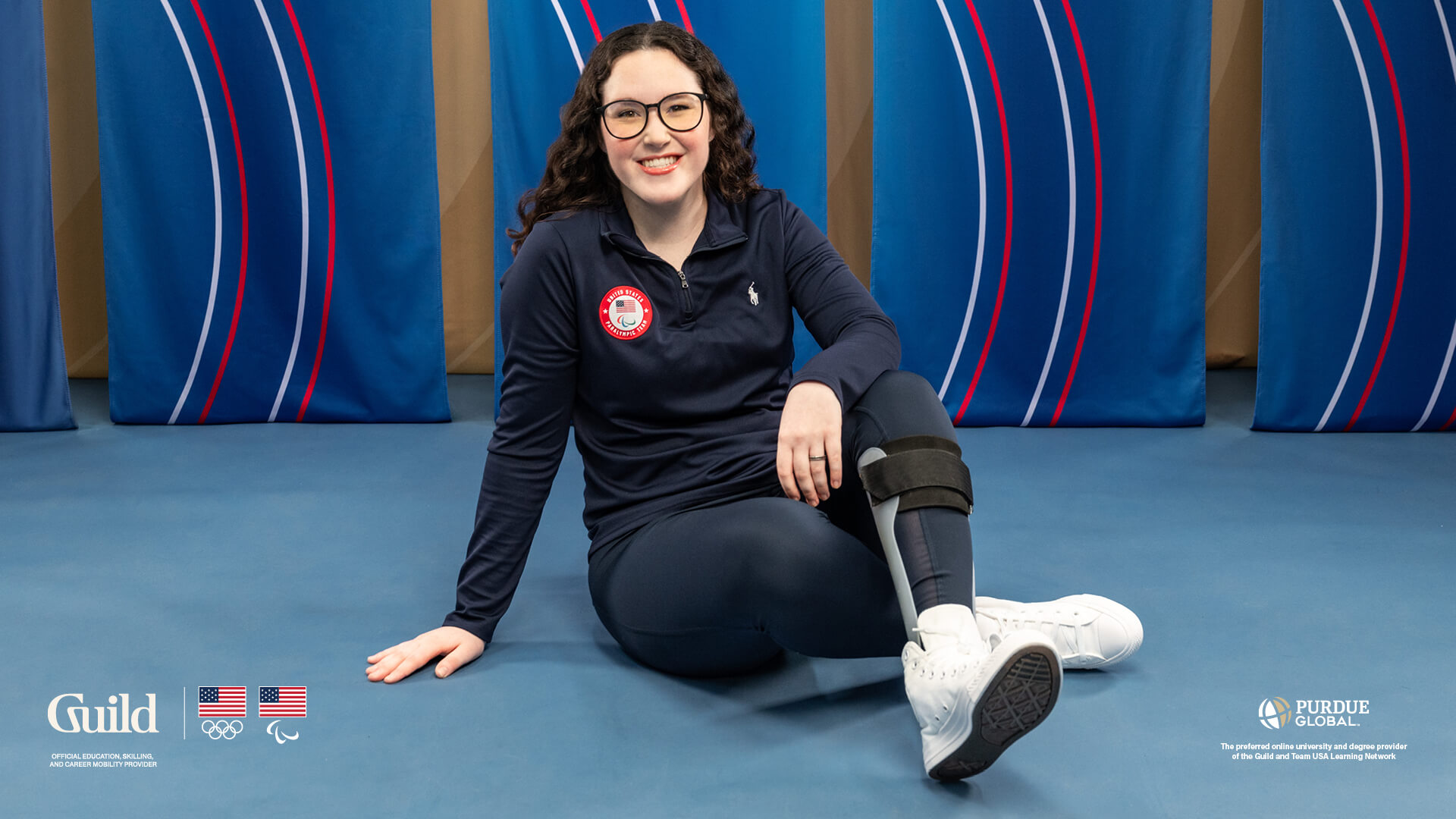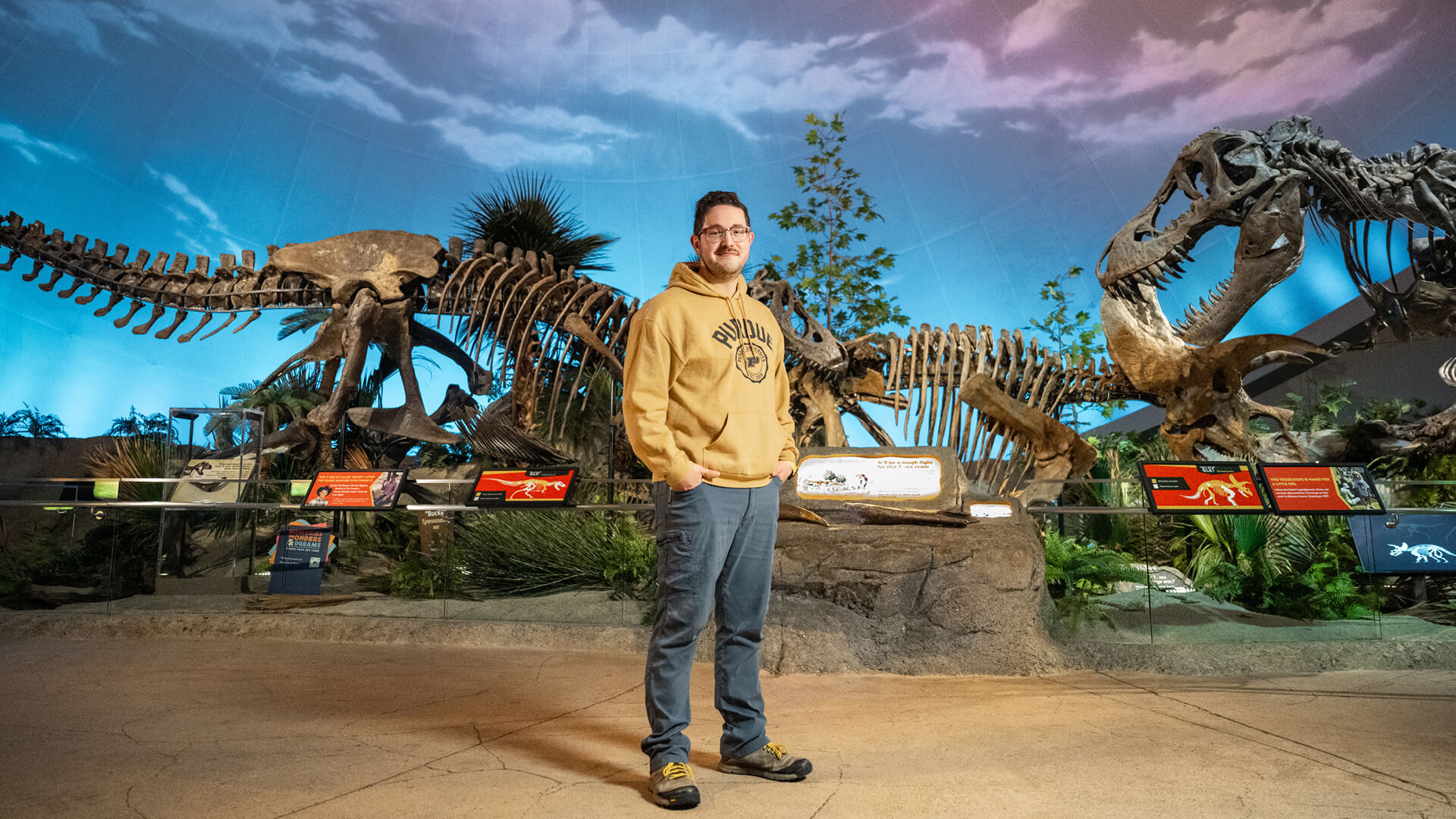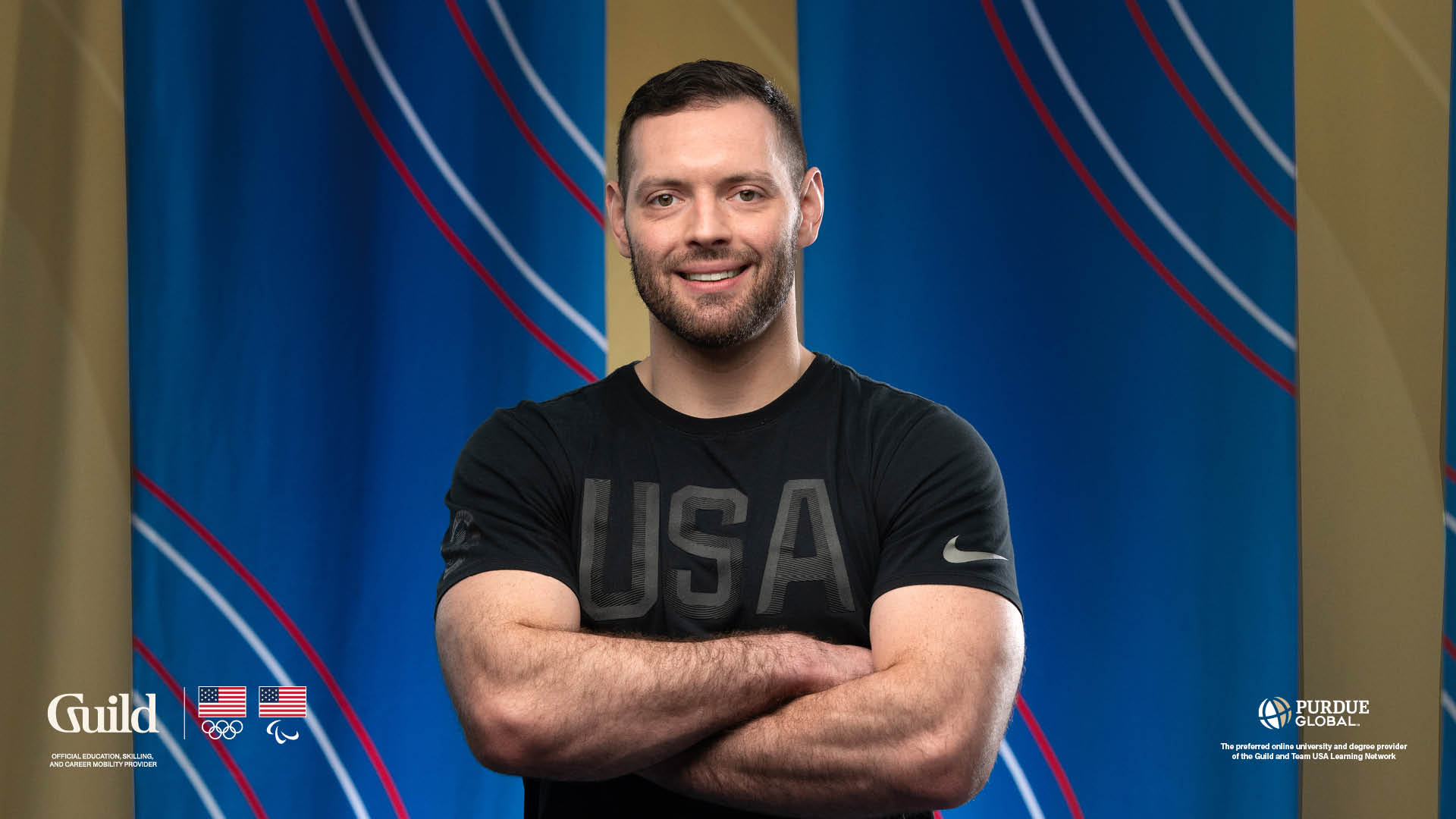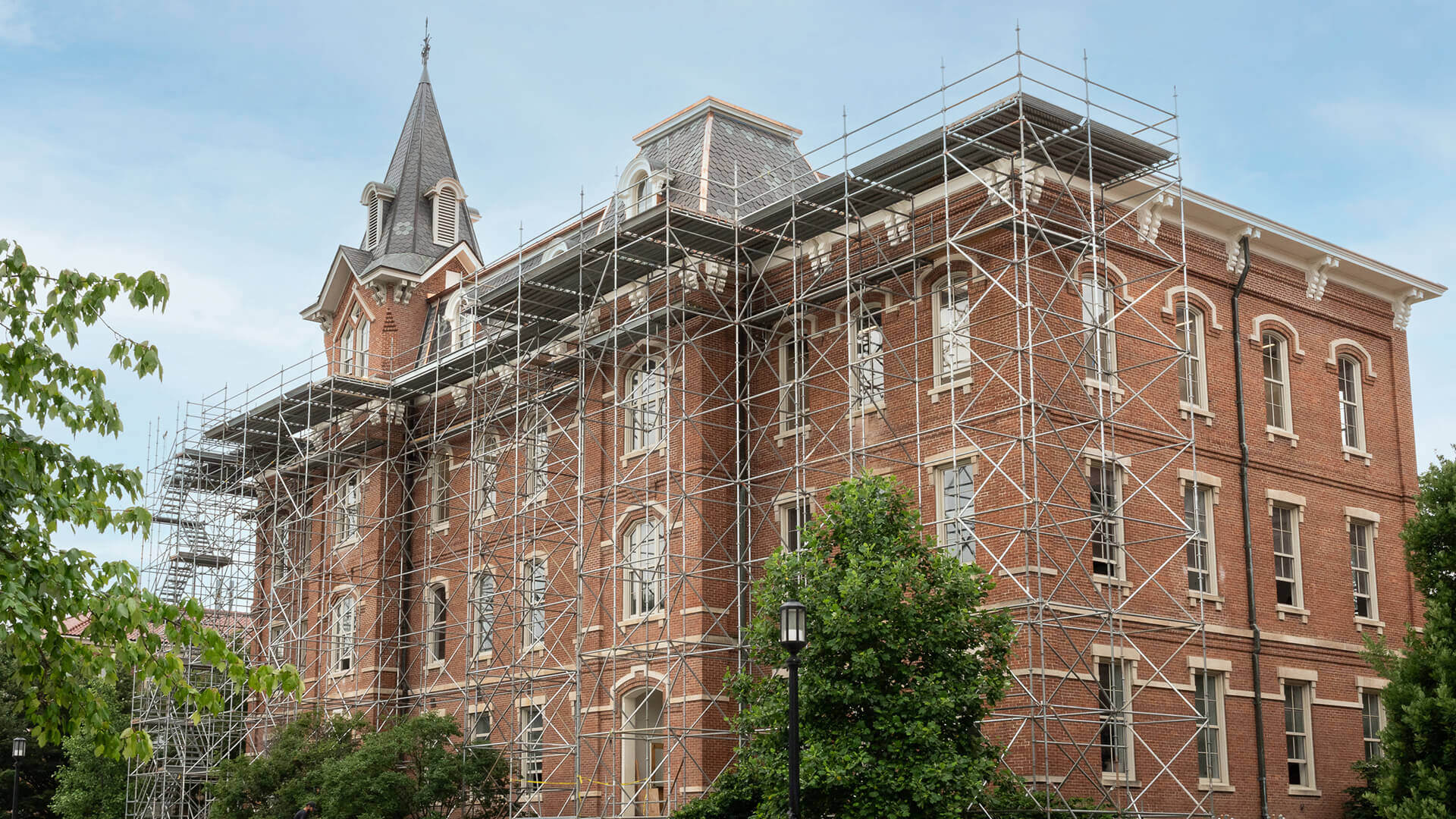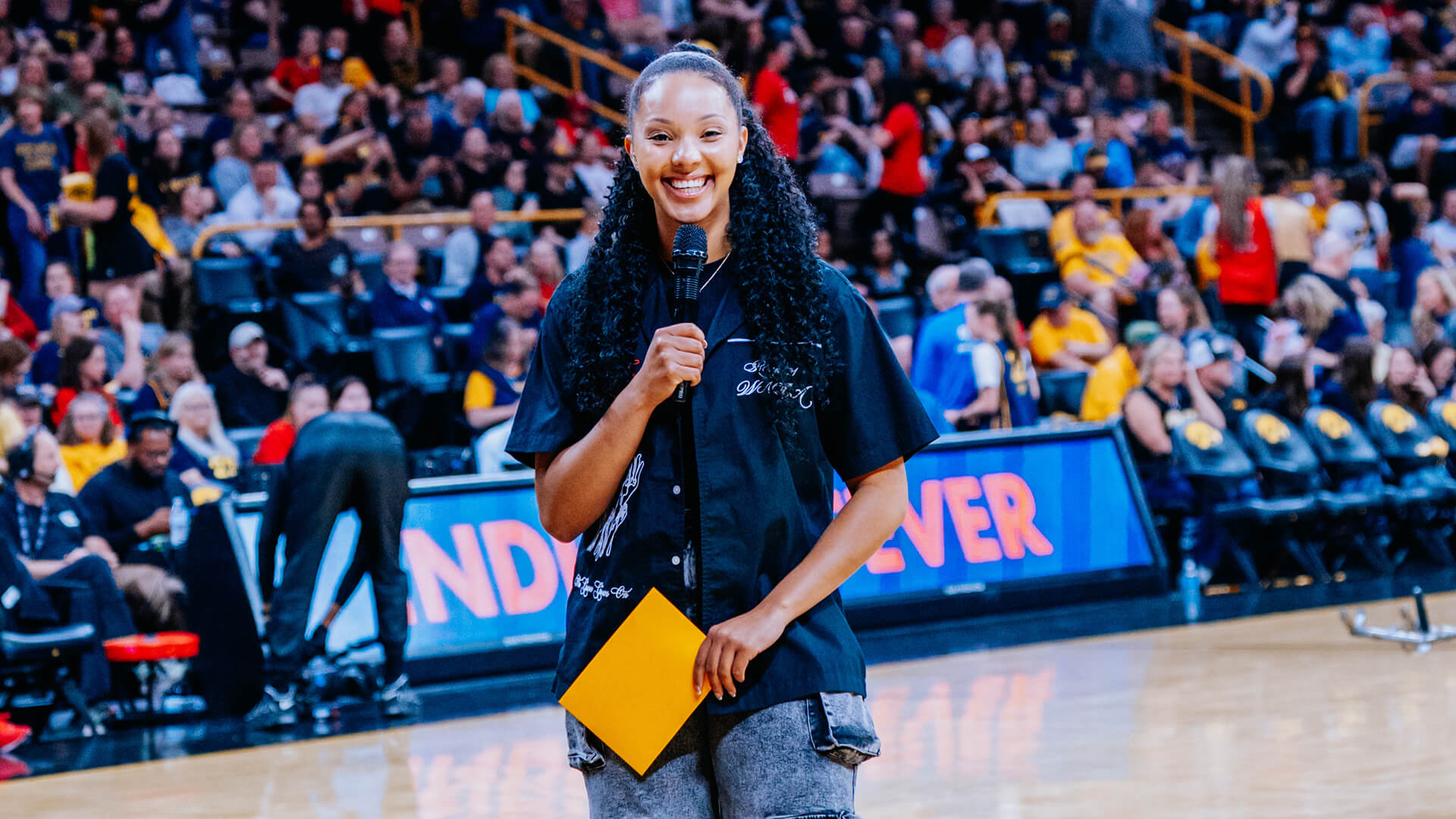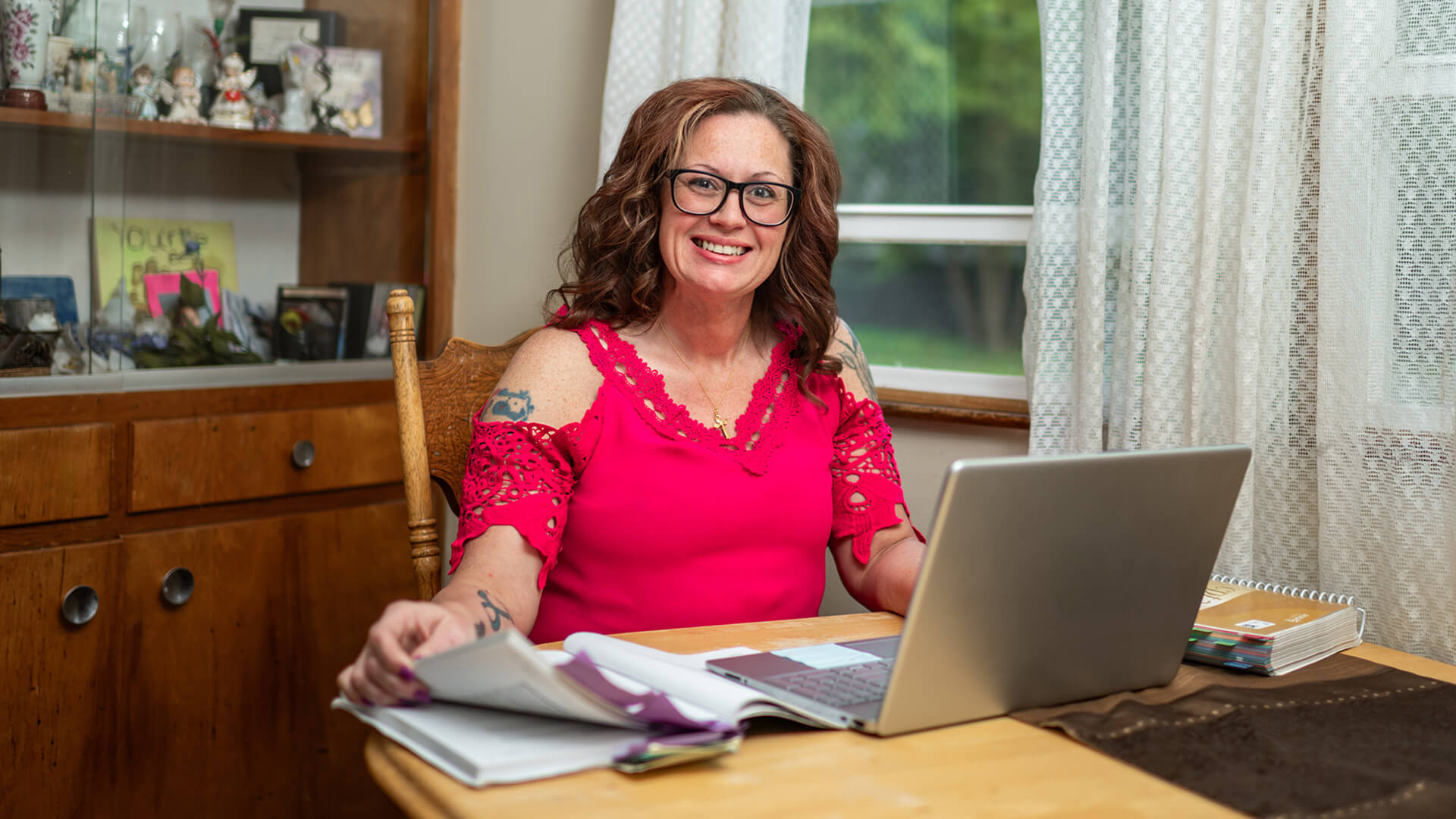Community involvement inspires student at Purdue University in Indianapolis

Sarah Papabathini, a Purdue AI student in Indianapolis
Sarah Papabathini is making a difference every day — as a mentor, researcher, volunteer, princess and AI major
When your schedule is as packed as Sarah Papabathini’s, only a pink weekly planner can contain it. “My planner is the Holy Grail,” she says. “I carry it with me everywhere and am constantly referring to it. Always asking myself, ‘OK, what’s next?’”
It turns out that “what’s next” is quite a lot. Papabathini, a Purdue AI student in Indianapolis, takes advantage of all the city and university have to offer, whether it’s community engagement, academic research or just fun with friends.
Indianapolis involvement
Growing up in Chicago, Papabathini learned firsthand the value of meaningful after-school activities. “My dad worked late when I was younger, so I was enrolled in after-school programs,” she says. “I really appreciate what they did for me and am especially grateful for the people who helped run them.”
It was a given for Papabathini that she would pay that gratitude forward by becoming involved in her college community. “I’m a mentor within high schools and middle schools here in the Indianapolis area,” she says. “I stay in regular contact with my students — meeting with them in person, sending them texts, asking about their days. I especially like to check in when I know they have a test or a big assignment.”
Papabathini started volunteering with DREAM Alive — a youth mentorship program founded by former Indianapolis Colts offensive tackle Tarik Glenn and his wife, Maya — during her first year at Purdue in Indianapolis. DREAM Alive is incredibly successful; it has a 100% high school graduation rate for participants.
“This program encompasses so much,” she explains. “We play games and do activities together when classes are over, but we also have lunch and learn during the day.”
Mentors eat a meal with students and then lead a lesson about career and educational opportunities or topics such as mental health and how to identify a trusted adult. “We’re trying to help them imagine their futures,” she says.
Papabathini’s Indianapolis involvements also gave her a chance at becoming something unexpected — royalty.
I am so proud of where I live and of my university. I am excited to talk up Indianapolis, the 500 Festival and Purdue in Indianapolis with everyone I meet.
Sarah Papabathini Purdue AI student in Indianapolis
500 Festival princess
As a 500 Festival princess, Papabathini has distinguished herself as one of Indiana’s most community-oriented and academically accomplished young women. She is responsible for being an ambassador for the festival and for Purdue in Indianapolis. It’s a role she leans into.
“There are 33 wonderful women who have been selected this year,” she says. “We all get to do exciting community outreach.”
One of Papabathini’s favorite activities is going to local elementary schools and “spreading the magic of the Indy 500.” She especially appreciates that this program allows students to have experiences that might not otherwise be available to them.
“We get to bring a pace car to students who likely wouldn’t have the chance to see one,” she says. “We get to show them what drivers wear. It’s so much fun, especially for kids who live a bit farther away and those who don’t get to come to the Indianapolis Motor Speedway. It’s cool to bring some of that experience to them.”
Papabathini is enthusiastic about sharing her love of Indiana with others. “I am so proud of where I live and of my university,” she says. “I am excited to talk up Indianapolis, the 500 Festival and Purdue in Indianapolis with everyone I meet.” As busy as she is in her city, Papabathini is just as immersed in life on campus.

Clubs and organizations
Papabathini’s interest in extracurricular activities at Purdue in Indianapolis ignited when she was still a prospective student. Several older cousins, who are alumni, strongly encouraged her to take a campus visit. She was impressed right away.
“My cousins had nothing but great things to say about the university while I was growing up,” she says. “They really encouraged me to visit campus. So when I was in high school, I toured the engineering school and loved it. I actually work in the engineering and technology office now as a peer mentor, student ambassador and at the front desk. It’s very much a full-circle moment.”
One of her primary extracurricular commitments is as vice president for the Indianapolis chapter of the Black Data Processing Associates (BDPA), which is a national organization. “My role within BDPA is connecting local companies in Indianapolis to our chapter here,” she says, “providing students with professional opportunities.”
A recent BDPA event on Purdue’s campus that Papabathini helped organize was an Eli Lilly and Company panel.
“We got some people from Eli Lilly to come to campus and speak with us about what they are looking for in a job candidate. They also discussed resume reviews.”
BDPA leadership meets weekly to discuss upcoming competitions and events. Papabathini, a self-described “people person,” appreciates that the work she does for BDPA connects people.
“I’ve loved forging connections with these great companies here in Indy,” she says. “I appreciate the professional networking that this position has granted me.” In addition to the BDPA, Papabathini is involved in numerous other on-campus clubs and organizations, including the Society of Women Engineers, Women in Technology, the National Society of Black Engineers, Asian Student Union, Black Student Union, Cru ministry, two honor societies and more.

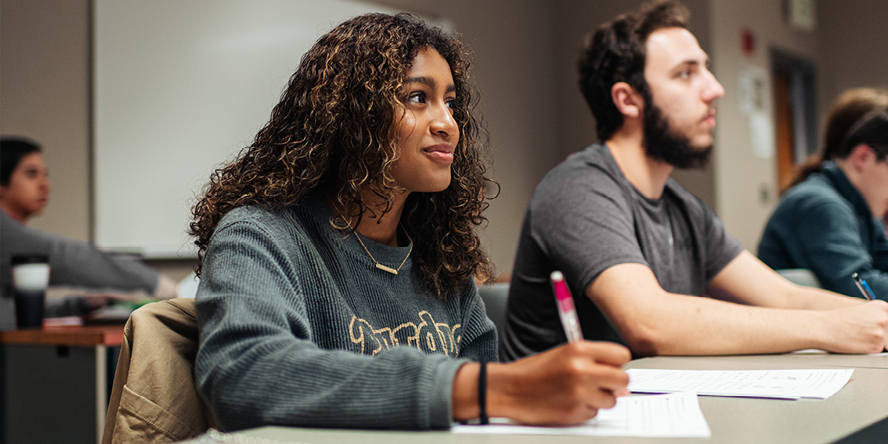


AI and zombies
Papabathini’s campus visit also helped her identify her future major. “After taking the tour, I thought that I could really see myself here, on this campus,” she says. “And my first year was the year the AI program was rolled out.”
Papabathini thought the major sounded interesting. She also noted that there weren’t a lot of other universities offering this type of degree program at the time.
“Introduction to AI my freshman year is what encouraged me to fully dive into the major,” she says. “We had the opportunity to train a system to distinguish between various objects and facial expressions, similar to facial recognition.”
The hands-on learning in her AI class involved training a computer model over and over and over again. “For one project, we were trying to make the program differentiate between a banana and an apple,” she explains. “This involved putting many bananas and apples in front of the machine and trying to get it to correctly say, ‘This is a banana’ or ‘This is an apple.’ My group was pleased to end up with 90% accuracy.”
She is also taking courses like Calculus III, which supports her minor in mathematics, and Neuroscience, where they are mapping parts of the brain to explore structure and function. She especially enjoys her Data Structure class, which is the study of design and analysis of abstract data structures and algorithms.
But it’s not all STEM for Papabathini. She is also taking classes in writing, golf and the zombie apocalypse.
“The title of the class is actually Zombie Apocalypse and Doomsday Infections,” she explains. “During the first half of class we explored various cultures and their representations of zombies. The second half of class looked at infectious diseases and how humanity can survive them.”
I want to see what impact I can make in the field. How can I contribute to the curve and empower learning for everyone? What can I do to contribute to the next evolution in AI?
Sarah Papabathini
Purdue AI student in Indianapolis
Academic research
Zombie apocalypses aside, Papabathini’s experiences in the classroom sparked a desire to conduct research. As a second-year student, she gained career-ready research skills by participating in a multidisciplinary program.
Currently, she is in the Navy Engineering Innovation & Leadership (NEIL) program, which helped prepare her to publish her co-authored research this semester. Every Monday, she meets with her NEIL research advisor to discuss what they have been working on and what stage they are at in their projects. “We also talk about challenges we’ve had,” she says. “It’s really an open meeting to see how we can help each other.”
What next?
From an early age, Papabathini has loved technology. In high school, she participated in the Girls Who Code club, which provided a foundation she has continued to build upon.
“I am interested in exploring the curve for technology,” she says. “Where is AI leading us? What’s on the horizon?”
She says the career possibilities are endless, and she can’t wait to explore them. But as someone who deeply invests in her communities, Papabathini is looking for even more.
“I want to see what impact I can make in the field,” she says. “How can I contribute to the curve and empower learning for everyone? What can I do to contribute to the evolution of AI?” No matter how Papabathini answers those questions, one thing is clear: She’s going to need more pink planners.
